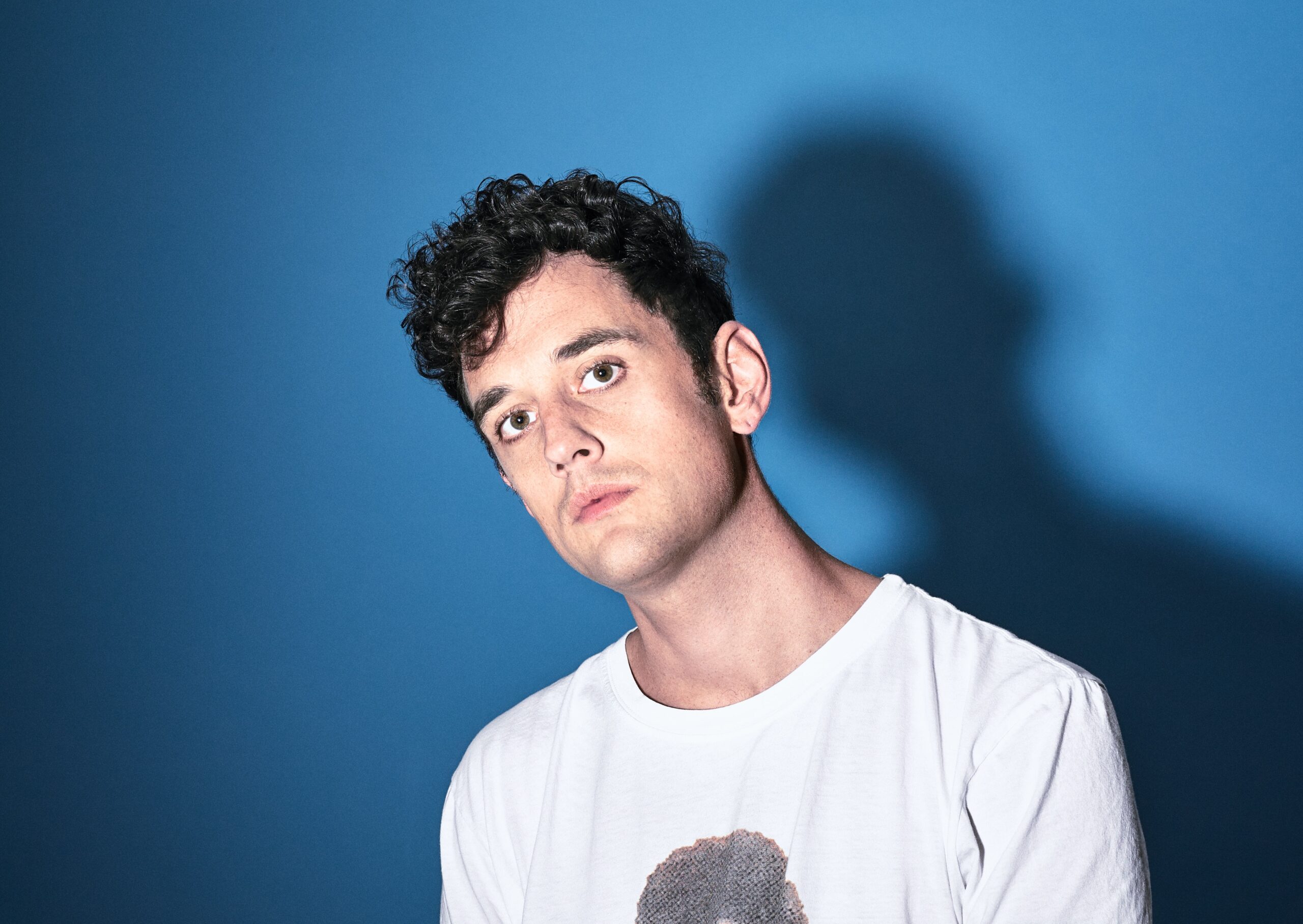Building an Audience on SoundCloud
This interview was originally published in April 2015 but the techniques described below are still considered best practices.
Budi Voogt is an entrepreneur and the co-founder of Heroic. He is also the author of The SoundCloud Bible, a comprehensive guide for artists about effectively using the SoundCloud audio distribution platform. At just 19, he co-founded the music management agency Heroes Management, which was later consolidated into Heroic Recordings, a record label and artist agency that promotes electronic dance music. They recently launched Heroic Audio, their audio production division, offering custom audio, post production, mixing and mastering services.

Budi talked about how SoundCloud has evolved since its launch in 2007 and where it will be headed in the future. He also offered up some best practices for artists looking to attract an engaged audience on the platform.
MC:
Thanks so much for taking the time to talk, Budi. Tell me a little bit about how you got into the music business and ended up founding your own record label.
BV:
Heroic Recordings is an agency/label. We release mostly electronic music and have about 15-plus artists, the best of which we also provide management and booking services. We also work with a bunch of key publishers. Our mission is to spot potential talent, give them a kick start and help them build careers. I started working in music about four years ago, when I was 19 years old. We started the label two years after.
MC:
So you’ve been an entrepreneur since Day One. How did you end up writing a book on SoundCloud promotion?
BV:
Heroic Recordings actually came about after I was already managing a bunch of artists with my agency, Heroes Management. I was managing my first act, and I got the opportunity to work with a music industry veteran. We launched an agency and began to sign more acts. What we noticed is that for up and comers working in the Electronic Dance Music arena, SoundCloud was the perfect stepping stone.
MC:
I usually work with rock and pop acts, and I always thought there had to be a way to make a splash with SoundCloud. I’ve noticed that EDM artists seemed to be able to work that platform a lot better than any other kind of artist. Would you say the platform is skewed towards dance music?
BV:
SoundCloud was originally started to provide a medium for easier collaboration between electronic musicians. It was for kids using their computers to create and improve loops and tracks. But it has grown so quickly and has really gone beyond electronic music. Two years ago, the main consuming body and also the main suppliers of music on SoundCloud was electronic styles. But now it’s been opened up to not only rock and pop, but also podcasters and interviewers.
MC:
When it first came out, I looked at it as a way to share a link to someone’s music that was easier than sending full files via email. Your book indicates that getting a following on SoundCloud is about strategic “follow” campaigns, similar to those you can engage in on Twitter. What is your philosophy on getting more followers and attention on the platform?
BV:
My perspective on building an audience on SoundCloud has changed over time, which is why I’ve already put out a second edition to The SoundCloud Bible. When the platform was new, you could definitely strategically follow people. And there was a sizable percentage of people who would follow you back after checking you out if your music and message applied to them.
What I am becoming convinced of now is that your content has to really speak for itself. Building a following takes a lot more than just using simple following tactics to build an audience. I would say that the foundation for artists is branding their product properly and then making sure to push it out to the right groups of listeners and interact with the right artists so that they organically get exposure in the markets where their music will be favored.
MC:
Many artists just starting out might not know where to start when it comes to finding artists and listeners that will be responsive to their music. As an expert on SoundCloud, is there a specific method you’ve found that is effective for seeking out like-minded artists to interact with on the platform?
BV:
Absolutely. The easiest way to go about it is to visit the “Explore” section of SoundCloud. In that area you’ll find different categories. For example, you’ll see “rock music,” “electronica,” “progressive” and other genres. Then you can find the most trending tracks within those categories. That’s a really good source for finding artists, tracks, labels and collectives who are making waves within that category.
Another logical step I would take as an artist is to go to music blogs or even blog aggregators like The Hype Machine and do some investigating there. For instance, if you are an indie rock band, you can go find a number of current acts you like who are coming up quickly and getting a lot of blog exposure. Through Hype Machine, you can find out exactly where they are getting exposure and extract those blogs that are covering them and source that information back to SoundCloud. Then you can see both who is covering the content within that scene and what all the related content and artists are. That will give you a pool of artists to interact with as a commenter and a fan or that you can ask about potential collaborations and how you can support each other’s content. And of course, this also gives you the opportunity to reach out to the collectives or labels that support them.
MC:
Obviously leaving spam comments and constantly promoting your music is going to turn people off on SoundCloud, just as turns people off on any other platform. What are some effective ways of interacting with people who are essentially strangers?
BV:
I think there is a percentage of conversion you could achieve by following and unfollowing people and randomly commenting on their tracks. But there is much more value in establishing real relationships. I would figure out the labels, the tastemakers and the artists within your sphere with whom you want to collaborate and co-create, or those whose work you want to promote and share through reposting in order to tap into each other’s audiences.
SoundCloud, probably even more than any other medium aside from YouTube, is a great source for getting blog exposure. There are a lot of tastemakers and bloggers, especially in the EDM market, who have a dedicated SoundCloud following. You can pitch your music to them there and then use their audience as a way to showcase your content.
MC:
And sourcing those tastemakers is about finding them as users within the platform?
BV:
Yes. They are other users. And most of these relevant SoundCloud bloggers also have a strong online presence, so you can often find them on sites like The Hype Machine. And you can get them by figuring out which artists and tracks that are blowing up right now, who is covering them and then looking for them on SoundCloud. For example, you have probably heard of MrSuicideSheep, who was originally a YouTube promoter. He also has a major presence and a channel on SoundCloud. He is one of the people I would target if you wanted to get a track that is his style to the right audience.
MC:
I know you have worked with at least one artist who has crossed over into the rock genre. Have you noticed anything that EDM artists do that help them successfully build an audience on SoundCloud that pop and rock musicians do not do?
BV:
I think the reason electronic musicians, labels and artists are so good at playing on this digital playing field is because it is what they grew up with and thus is ingrained in the process of creating music. Conventional pop artists and people who are not so Web savvy might look at a show like The X-Factor or some other method as a better way to get exposure than online channels.
I would say that artists’ ability to use SoundCloud and other online platforms efficiently is based on the extent to which they are used to using these online platforms for getting promotion. It’s about how ingrained it is in their lives. For the 20-year olds, it’s so normal to interact with their fans via Facebook chat, Snapchat and to send music via SoundCloud. So, it’s just a natural extension of that process to promote their music through all those channels. For some older musicians, it may not be as intuitive.
MC:
Do you use Snapchat to promote artists’ music?
BV:
I don’t, but I do know artists that have a very strong following there. I think the nature of the Snapchat beast is very different from that which typically drives the audience as a musician. The platform is very story based. It seems to work best for video bloggers and others that have an online-based persona. But that’s not to say that a musician couldn’t create a story on Snapchat.
MC:
Do you have any specific examples of people who are finding real success on SoundCloud?
BV:
An artist that I represent, San Holo is doing very well. He is a really talented musician. When I picked him up about five-and-a-half months ago, he was just producing beats for other people. At the time he had about 4,000 SoundCloud followers. Now he is approaching 100,000, and we are about to do a major release on Ultra Music. He is really a prime example of someone who has had SoundCloud be the real catalyst of his success. He’s an artist I started working with when I finally had enough experience to know what really worked and really didn’t on the platform. And we just applied all those strategies. He proves that SoundCloud can really work if all the most effective strategies are executed.
MC:
There are a lot of musicians and labels who are displeased with the lack of monetization on SoundCloud and the fact that it’s very hard to track sample use, publishing violations, etc. Have you run into these same challenges?
BV:
Yes, and I actually know how to solve that problem. I’m working with The District in Vancouver, Canada, a media company that represents tastemakers like MrSuicideSheep and Trap Nation on channels like YouTube and SoundCloud. What SoundCloud has done is enabled a select number of distributors and key partners, like The Orchard and some others to bring on people to experience the first steps of the monetization process.
You’re absolutely right that the growth of the platform has caused some problems. They recorded 175 million plays per month in December 2014. It was inevitable that they were going to have to figure out a way to monetize.
However, there’s a tradeoff that major labels and others have to make, because their catalogs are getting a lot of exposure on this platform, and there’s a big gray legal zone around how to monetize the content. And the rates the labels wanted to negotiate were way too steep for SoundCloud, whose original focus was not originally to create a system that could pay rights holders, rather to create a system that could help expose music.
SoundCloud is slowly ingraining a monetized system and rolling out advertisements. These will initially run in the U.S. Distributors like The Orchard will be bringing on their key partners to help with this monetization. This will initially apply to the most relevant pages with the biggest following and traction – musicians as well as tastemakers, YouTube promoters, bloggers and others. You may have started seeing pages with big banners on them. Those banners are an indicator that they are partners in this switch.
The platform is called On SoundCloud. The partners who have access to this monetized content are called “Premier Partners.” The process is that if the master rights holders are able to give permission for monetization. SoundCloud is slowly testing out this new system on selected pieces of content.
MC:
That seems like good news for everybody.
BV:
It guarantees that SoundCloud gets to stay and continue to grow and that both the major labels and the smaller rights holders will get paid. Now it’s just a matter of time before it is perfected, streamlined, automated, etc.
MC:
My perception was that the only big label that has done an outright deal with SoundCloud is Warner Music Group.
BV:
That’s what I understand as well. But it’s inevitable that all major labels will jump on at some point. Think about YouTube: A while back, they reported they had one billion accounts. Of course, we don’t know the percentage of those that are active. SoundCloud is reporting 175 million plays per month right now. If they keep growing at this incredible rate, everyone will need to partner up. They will want to see the money, and it will no longer make financial sense to keep all their content off the platform.
MC:
There seems to be a lot of people sharing content that isn’t necessarily theirs right now. It seems like that might be hard to monitor.
BV:
That is true. But one of the primary drivers of SoundCloud at the moment is also the fact that they allow all this great content to be there. On YouTube, if you wanted to uplad a mix to expose a bunch of great tracks you like and didn’t have permission, it would be taken down almost immediately. SoundCloud is one of the few places where you can still post tracks you like and have them stay up.
MC:
Is Premier Partner status currently hard to obtain on SoundCloud?
BV:
There are a number of key distributors who are able to bring on Premier Partners. Since I am currently working with one of them, I have the ability to bring them on myself. All these distributors look for accounts that have a certain number of plays and followers per month. The monetization process is not fully automated yet. This is just a trial. They are slowly rolling it out. And as they are rolling it out, they are identifying the hiccups and hurdles and improving the system.
MC:
YouTube has started running into problems with these third-party claim notices. But it seems like the take-downs are fewer and fewer.
BV:
That is not necessarily true, but the third-party claim issue is already extending to SoundCloud, so you’re going to see the same dynamic on this platform.
MC:
Do you have any general advice for people who are new to SoundCloud and want to get started on the platform?
BV:
I think the most helpful advice is the most straightforward. On SoundCloud, just as on any other platform, you want to make sure you are presenting a consistent, uniform brand; don’t use 17 different pieces of artwork or designs.
You should also use instructive track titles – titles that include the name of the song and the artist’s name. And when you tag, remember that only the first tag you use in an upload will be indexed in one of the categories on SoundCloud. In other words, if you tagged a track as “Rick Goetz,” the chances of that track being indexed in a playlist for “rock” under the “Explore” tab will be less likely than if you made the first keyword be “rock” and the second be “Rick Goetz.”
Other straightforward advice would be put personal details in your description and add your website and all your other social media links so people can see who you are beyond SoundCloud. What I typically suggest when consulting a label or an artist about social media is that they mirror all their content across all platforms. In other words, if you have five tracks up on YouTube, you should have those same five tracks up on SoundCloud.
To learn more about Budi Voogt and the work he does with musicians, visit his blog http://www.budivoogt.com/ And make sure to check out his book, The SoundCloud Bible https://heroic.academy/soundcloudbible/









